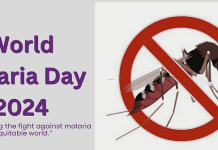
German firm BioNTech said on Thursday that patent protection for COVID-19 vaccines is not holding back production or supply of the jabs that it developed with Pfizer.
“Patents are not the limiting factor for the production or supply of our vaccine. They would not increase the global production and supply of vaccine doses in the short and middle term,” it told AFP in a statement, in a tacit rejection of a call from the United States to waive patent protections for COVID-19 vaccines.
Rather it was issues ranging from the set up of manufacturing sites to the sourcing of raw materials to the availability of qualified personnel that were holding up the process.
“If any of these requirements is not met, the quality, safety and efficacy of the vaccine cannot be ensured by the manufacturer nor the innovator. This could put the health of the vaccinees at risk,” warned the company.
Underlining the minute details that could jeopardise production, the Mainz-based company said that if some of the “limited and important raw materials” are not used in the most efficient manner, it could lead to fewer vaccine doses being manufactured.
BioNTech said it has been already able to ramp up supply by entering into licensing and manufacturing partnerships with other pharmaceutical companies such as Merck, Novartis and Sanofi.
It argued that further expansion of such cooperation would “help to end this pandemic by ensuring worldwide supply with safe and effective vaccines”.
BioNTech/Pfizer’s vaccine became the first Covid-19 jab to be approved for use in the West late last year.
It is now supplying more than 90 countries worldwide and is expecting to ramp up its production to up to three billion doses by the end of the year from 2.5 billion doses expected previously.
The pace will further accelerate to more than three billion doses in 2022.
(AFP)













